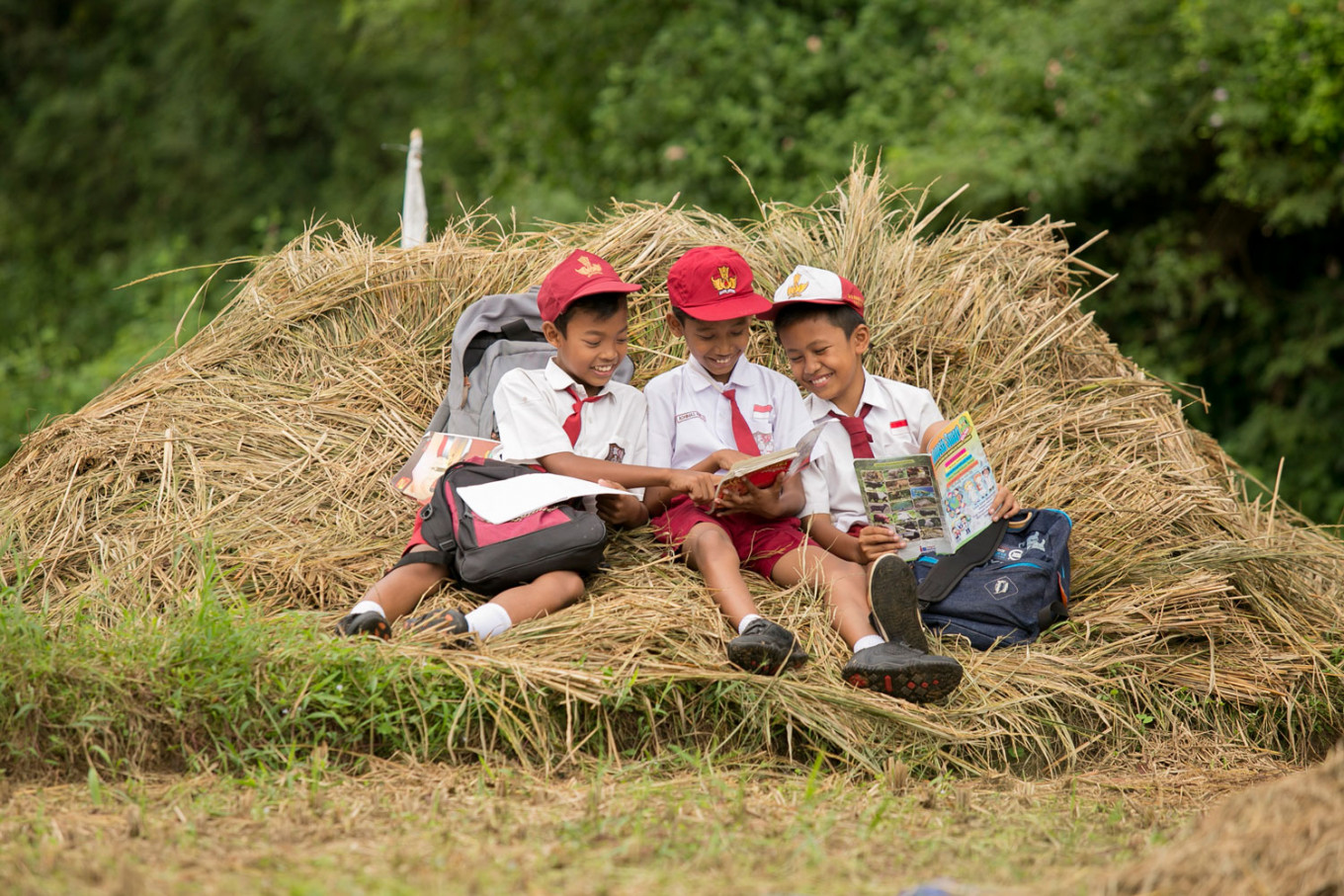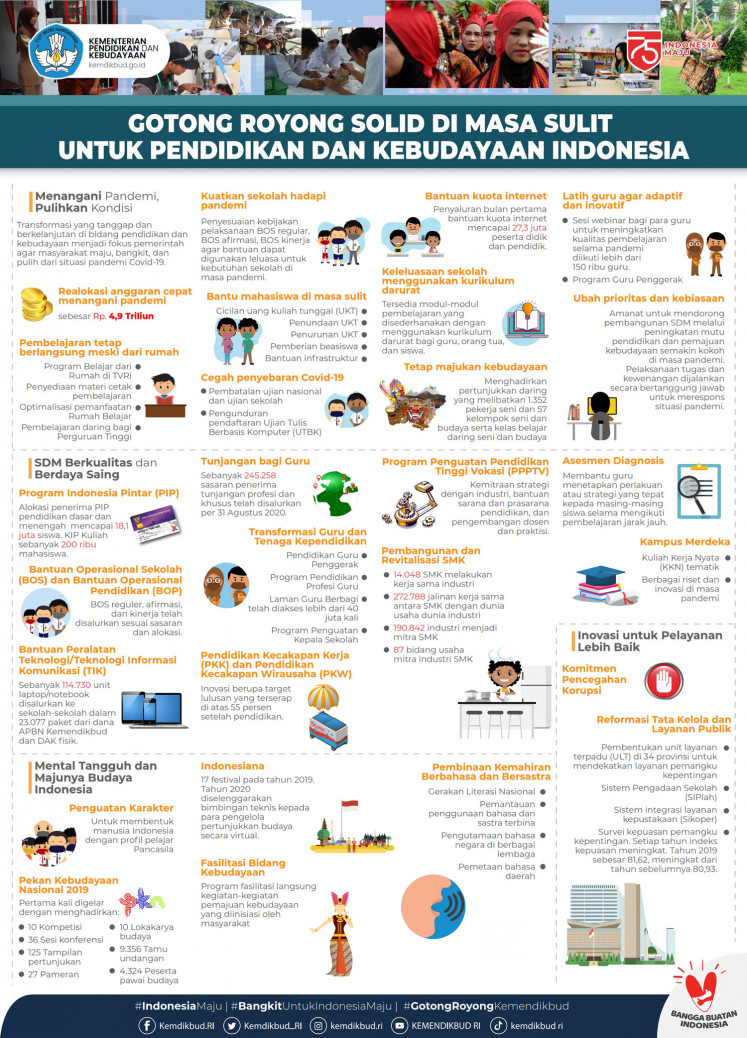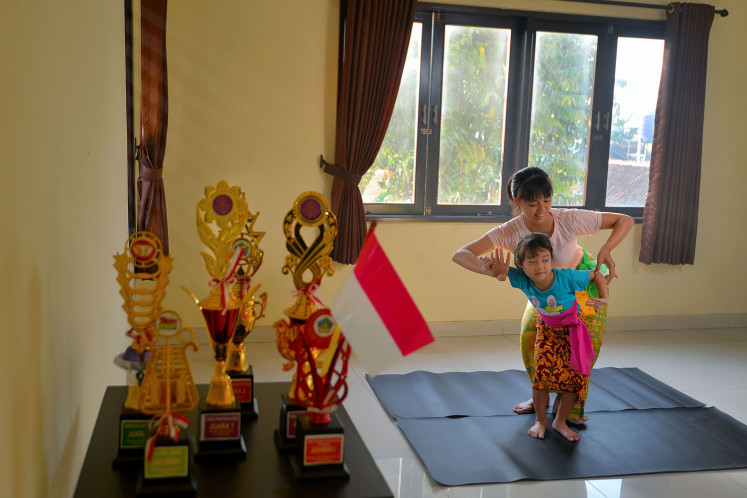Popular Reads
Top Results
Can't find what you're looking for?
View all search resultsPopular Reads
Top Results
Can't find what you're looking for?
View all search resultsResilient and ebullient: Moving on amid the pandemic
Change text size
Gift Premium Articles
to Anyone
T
he COVID-19 pandemic and its challenges are far from over,but with all the available strength and resources pulled together, we are optimistic that Indonesia should be able to quickly recover from the crisis.
A responsive and sustainable transformation of policies and programs in the field of education and culture is one of the government's focuses in the hope that society can recover, advance and rise from the pandemic.
The government has reallocated budget funds for handling COVID-19, including at the Ministry of Education and Culture (Kemendikbud), which hasearmarked Rp 4.9 trillion for various programs and policies, such as mobilizing COVID-19 volunteersnationwide, increasing the capacity of educational hospitals (RSP) to become COVID-19 test centers, and procuring medical equipment.
With health and safety a particular priority, the Kemendikbud sets out various initiatives to support online activities, from the Learning from Home (BDR) program and educational radio to providing learning materials, optimizing the use of the RumahBelajar (learning house) application anddevising simplified learning modules adjustable to emergency situations.
Educational assistance programs include the agreed installment scheme, the suspension and lowering of tuition fees, scholarships, relaxed rules on the use of School Operational Assistance (BOS) and Educational Operational Assistance (BOP) funds as well as the elimination of national/school exams to prevent the spread of COVID-19.
Internet Quota Assistance
Another assistance program by Kemendikbud is to offer internet data quotas for education institutions, for teachers, schoolchildren, lecturers and students at all levels.
The internet quota assistance program will last from September to December with the first month of distribution seeing 27.3 million educators and students helped in their learning-from-home activities.
This assistance initiative has been widely applauded on social media like Twitter. As of Sept. 30, at least 5,500 netizens tweeted, expressing appreciation and gratitude for the policy.
Many tweets are accompanied with a posting of screenshots of the quota receipt, which is evidence that the program has benefited the community. The @gilangmfg account writes, "Alhamdulillah (thank God), finally I have got the Kemendikbud quota," with a screenshot from the cellphone as evidence.
Fostering culture has also been on the agenda by giving room for arts and cultural performances as well as its learning classes.
A cultural show uploaded to the YouTube channel of the Directorate General of Culture attracted as many as 2,015,440 viewers. Public enthusiasm about the directorate’s arts and cultural content during the pandemic is quite high, with the number of viewers increasing by about 300 percent compared to the same period of last year.
Following the inaugural National Cultural Week (PKN) 2019 as part of an effort of national cultural preservation, a virtual edition of the event is scheduled to take place from Oct. 31 to Nov. 30,2020,involving 4,791 art workers from all over Indonesia.
. (Courtesy of Ministry of Education and Culture (Kemendikbud)/,)HR Strengthening Program
To meet the government's vision of developing human resources, Kemendikbud is also working to ensure the sustainability and expansion of access to education, from early childhood education to universities.
The vision is realized with the implementation of the Smart Indonesia Program (PIP) and the Smart Indonesia Card (KIP) for Tuition, School Operational Assistance (BOS) and Educational Operational Assistance (BOP), work training and entrepreneurial skill programs, with a target of getting more than 50 percent of the training program graduates promptly employed.
The development and revitalization of vocational schools (SMK) has also been continuously improved, and up to now, 272,788 collaborations have been made between SMKs and the industrial world.
Vocational higher education (PPTV) improvement programs are carried out through strategic partnerships with industry, providing facilities and infrastructure assistance and developing the capacity of lecturers and practitioners.
The Merdeka Belajar (learningfreedom) and Kampus Merdeka (learning freedom at campus) programs have been launched with a view to improving the quality of education and building the future.
The programs are expected to give students a comfortable learning experience. In the Kampus Merdeka program, universities are urged to open new study programs and flexible accreditation suitable to the needs of the labor market.
Resilience and Cultural Preservation
. (Courtesy of Ministry of Education and Culture (Kemendikbud)/.)Human resources with determination anda sense of belonging to the country and its culture are also part of Indonesia’s national character-building vision.
With all the challenges the pandemic may bring, various efforts to strengthen the nation’s characters have been tirelessly pursued through webinar in the hope of shaping up Pancasila-abiding human resources.
The Kemendikbud also sees a need to always ensure the preservation of the Indonesian language and literature as a national identity through the National Literacy Movement, which also sees to it that local languages are part of national assets.
Educational and cultural policies are carried out to ensure as wide access to education as possible, from schools to universities, improve the welfare of teachers, increase the quality and distribution of education, promote culture and provide the public with the best services through innovation and transformation.












